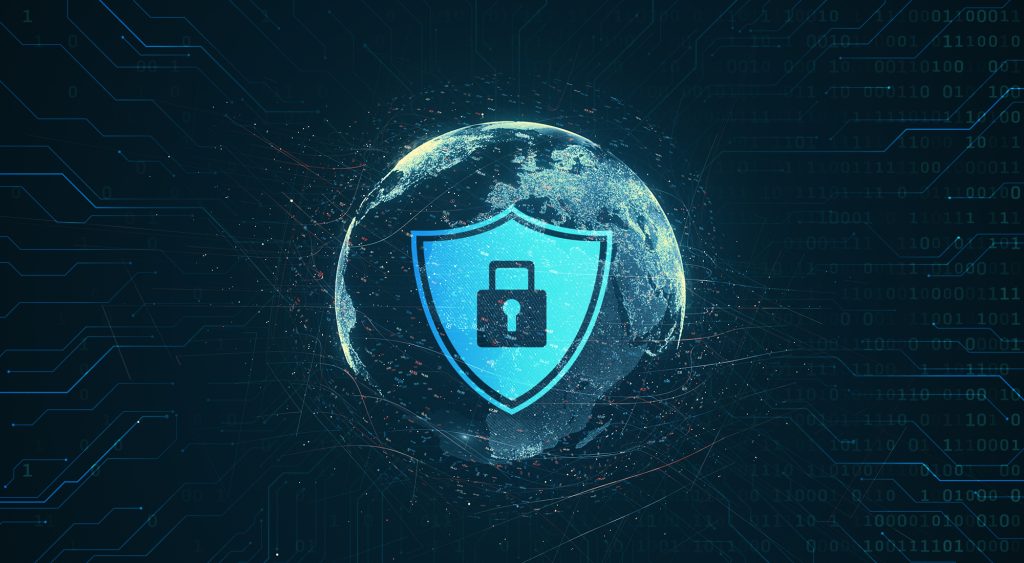
In an era where digital threats are constantly evolving, the need for skilled cybersecurity professionals is skyrocketing. Companies worldwide recognize the importance of robust cybersecurity measures, driving up demand for individuals who can protect data and infrastructure. This blog explores the opportunities in cybersecurity, highlighting career paths, essential skills, and how you can step into this promising field.
Why Cybersecurity is a High-Demand Field
As businesses and individuals become increasingly reliant on digital systems, cyber threats grow in both volume and complexity. This rapid evolution has led to a cybersecurity talent shortage, with companies seeking experts to secure sensitive data and protect networks from cyberattacks. Governments and industries, especially finance, healthcare, and tech, face immense pressure to strengthen their cybersecurity infrastructure. This ongoing demand has created vast job opportunities, making cybersecurity one of the most sought-after fields in IT today.
For anyone looking to enter a future-proof career, cybersecurity offers stability, high salaries, and diverse roles. Whether in a corporate environment, consulting, or even working remotely, cybersecurity professionals play a crucial role in safeguarding digital spaces. With cyber threats on the rise, this field provides both job security and the chance to make a tangible difference.
Types of Cybersecurity Careers to Explore
Cybersecurity encompasses various roles, each focusing on a specific aspect of data and network security. Here’s a look at some prominent career options:
Network Security Analyst
Network Security Analysts monitor and manage network activities to detect any unusual behavior. Their primary task is to implement security protocols that prevent unauthorized access. They work closely with IT departments to assess vulnerabilities and ensure that network security standards are maintained. As cyber threats increase, Network Security Analysts are vital in protecting data and infrastructure, offering a rewarding entry point into cybersecurity.
Security Consultant
Security Consultants advise organizations on the best security practices, tailoring solutions based on unique needs and risks. They often perform risk assessments, devise security policies, and ensure compliance with regulatory standards. This role requires a deep understanding of different cybersecurity frameworks and an ability to think strategically. Security Consultants typically work with various clients, making it a dynamic career option with opportunities for growth.
Penetration Tester
Penetration Testers, or ethical hackers, play an essential role in identifying vulnerabilities within an organization’s system. By simulating cyberattacks, they expose potential weak spots, allowing companies to fix issues before real threats arise. This role requires strong technical skills, attention to detail, and a proactive approach to security. Penetration Testing is a high-demand career with ample room for specialization.
Essential Skills for a Successful Cybersecurity Career
A successful career in cybersecurity hinges on both technical and soft skills. Key technical skills include knowledge of network protocols, understanding of firewalls and intrusion detection systems, and proficiency in coding languages like Python and Java. Additionally, familiarity with tools such as Wireshark, Nmap, and Metasploit can be advantageous.
Soft skills, such as problem-solving, adaptability, and strong communication abilities, are equally essential. Cybersecurity professionals must translate complex technical data into actionable insights for non-technical stakeholders. With threats constantly evolving, adaptability is crucial. By mastering these skills, you can position yourself as a competitive candidate in the cybersecurity job market.
Certifications That Boost Cybersecurity Career Prospects
Certifications serve as a benchmark for cybersecurity expertise, helping candidates stand out in a competitive job market. Some widely recognized certifications include:
- Certified Information Systems Security Professional (CISSP): Designed for experienced professionals, CISSP is ideal for those interested in managerial roles.
- Certified Ethical Hacker (CEH): This certification focuses on penetration testing and is essential for those interested in ethical hacking.
- CompTIA Security+: A great certification for beginners, covering essential security concepts and best practices.
These certifications demonstrate a commitment to the field and provide knowledge that applies to real-world scenarios. Pursuing one or more of these certifications can significantly enhance your employability and open doors to higher-paying roles.
How to Start Your Journey in Cybersecurity
Breaking into cybersecurity requires a solid foundation. Many professionals begin with a degree in computer science, information technology, or a related field. However, bootcamps and online courses offer alternative pathways, especially for those looking to shift careers. Self-study resources like cybersecurity blogs, webinars, and YouTube tutorials also help beginners get started.
Internships or entry-level roles, such as IT support or junior network administrator, offer practical experience and are often stepping stones into specialized cybersecurity positions. Networking is also essential—connecting with industry professionals can lead to valuable job leads and mentorship opportunities.
Future Prospects and Growth in Cybersecurity
The future of cybersecurity looks bright as more sectors embrace digital transformation. Emerging areas, such as artificial intelligence, machine learning, and blockchain, are creating new challenges that require innovative security solutions. This dynamic field offers continual learning opportunities and the chance to evolve with technology.
With cyber threats becoming more sophisticated, job roles are expected to expand, including specialties in fields like threat intelligence, cloud security, and mobile security. As companies prioritize cybersecurity, professionals in this industry can look forward to a steady demand for their skills and expertise, making it a promising career for years to come.
Key Steps to Advance Your Cybersecurity Career
To achieve long-term success in cybersecurity, it’s important to keep building on your skills and experience. Here are some practical steps to keep your career moving forward:
- Stay Updated on Emerging Threats and Tools
Cybersecurity is ever-changing, so it’s essential to keep up with the latest cyber threats, malware, and security tools. Many cybersecurity experts follow industry blogs, subscribe to newsletters, and participate in online forums. Staying informed about trends like AI in cybersecurity, ransomware, and cloud security ensures you’re prepared for new challenges. - Participate in Cybersecurity Competitions
Competitions, such as Capture the Flag (CTF) events, give you the chance to hone your skills in a real-world setting. These contests are hosted by universities, companies, and professional organizations. They test your ability to think critically, solve problems, and execute cybersecurity strategies. Plus, participation in these events is highly regarded by employers. - Gain Experience with Internships and Freelance Projects
For those just starting out, internships and freelance projects provide hands-on experience. Working on actual security challenges and developing real solutions can help you build a strong portfolio. Look for internships at tech firms, financial institutions, or even government organizations, as they are constantly in need of cybersecurity support. - Expand Your Professional Network
Networking with other cybersecurity professionals can open doors to job opportunities and collaborations. Attend conferences, such as DEF CON and Black Hat, or join cybersecurity groups on LinkedIn. Connecting with mentors or joining cybersecurity communities can offer valuable insights and guidance as you advance.
Common Challenges and How to Overcome Them
A career in cybersecurity can be rewarding, but it also comes with its challenges. Here are some of the common hurdles cybersecurity professionals face and tips for overcoming them:
- Rapidly Changing Technology: The cybersecurity field evolves quickly, and it can be challenging to keep up. Overcome this by committing to continuous learning through online courses, certifications, and industry news.
- High-Stress Situations: Dealing with cybersecurity incidents can be intense. Building resilience through stress management techniques and time management skills is essential. Practicing self-care can also help you maintain a healthy work-life balance.
- Complex Problem Solving: Cybersecurity requires strong problem-solving abilities. Cultivate this skill by regularly participating in exercises, simulations, and problem-solving forums.
Facing and overcoming these challenges not only strengthens your skills but also prepares you for the demands of high-stakes cybersecurity roles.
Additional Resources to Enhance Your Cybersecurity Knowledge

A wealth of resources is available for those looking to dive deeper into cybersecurity. Here are some reliable options:
- Online Learning Platforms
Platforms like Coursera, Udacity, and LinkedIn Learning offer courses taught by cybersecurity experts. Many courses are project-based, providing practical experience. Popular courses include CompTIA Security+ and MIT’s Cybersecurity for IT Professionals. - Podcasts and Webinars
Stay informed about cybersecurity topics through podcasts like “Darknet Diaries” and “CyberWire.” Webinars, often hosted by cybersecurity organizations or software companies, cover the latest topics and trends and are an excellent way to learn on the go. - Cybersecurity Blogs and Websites
Blogs like Krebs on Security, Threatpost, and the SANS Institute offer timely updates on cybersecurity incidents and trends. Bookmark these sites to stay informed and keep learning.
Leveraging these resources can keep your knowledge current, ensuring you remain competitive and well-prepared for advanced cybersecurity roles.
Final Thoughts on Building a Cybersecurity Career
Building a career in cybersecurity means stepping into a field filled with opportunities for growth and meaningful impact. Whether you’re drawn by the demand, the potential for high salaries, or the chance to protect vital data, a career in cybersecurity can be both challenging and fulfilling.
From gaining foundational skills and obtaining certifications to advancing through experience and ongoing learning, each step you take brings you closer to a robust career. By seizing opportunities, staying resilient, and continually developing your expertise, you’ll be well on your way to a successful cybersecurity career.
Call to Action: Start Your Cybersecurity Journey Today
Now is the time to act! If you’re ready to start your career in cybersecurity, consider enrolling in a certification course or attending a local cybersecurity meet-up. The demand for skilled professionals continues to grow, and with the right approach, you can secure your place in this dynamic and essential field. Get started today, and become part of the next generation of cybersecurity defenders.
Cybersecurity Career Strategies for Different Experience Levels
No matter where you are in your career, there are strategic steps you can take to advance in cybersecurity. Here’s a breakdown of career strategies for beginners, mid-level professionals, and experienced experts.
For Beginners
- Start with a Strong Foundation in IT Basics
Beginners should ensure they have a solid understanding of basic IT concepts, including networking, operating systems, and hardware. Knowledge of TCP/IP, DNS, firewalls, and data encryption provides a foundation that cybersecurity skills build on. - Pursue Entry-Level Certifications
Certifications like CompTIA Security+ and Certified Information Systems Auditor (CISA) offer an introduction to cybersecurity principles and demonstrate commitment to learning. These certifications help beginners qualify for entry-level roles. - Take on a General IT Role First
Many cybersecurity professionals start in general IT roles like IT support or network administration. This experience provides practical exposure to managing systems, troubleshooting, and understanding how networks operate—all essential skills for cybersecurity.
For Mid-Level Professionals
- Specialize in a Niche Area
Once you’ve built experience, consider specializing in a niche area like cloud security, ethical hacking, or incident response. Specializing can make you more competitive and allow you to command higher salaries. - Obtain Advanced Certifications
Mid-level professionals should aim for certifications that validate specialized skills. The Certified Ethical Hacker (CEH), Certified Information Security Manager (CISM), and Certified Information Systems Security Professional (CISSP) are popular choices for professionals looking to advance. - Develop Project Management Skills
As you gain experience, you may find yourself managing security projects. Enhancing your project management skills or obtaining a certification like Project Management Professional (PMP) can help you lead security initiatives effectively and qualify you for senior roles.
For Experienced Professionals
- Pursue Leadership Roles
Seasoned cybersecurity professionals may consider moving into management or leadership positions such as Chief Information Security Officer (CISO) or Director of Security. These roles allow you to shape an organization’s security strategy and lead teams. - Mentor Newcomers and Build a Personal Brand
Share your expertise by mentoring beginners and participating in cybersecurity events. Building a personal brand through LinkedIn or contributing to industry publications can establish you as a thought leader and expand your professional network. - Stay Informed on Emerging Technologies
Even at senior levels, it’s crucial to stay updated on emerging tech like quantum computing and AI in cybersecurity. Familiarity with these trends allows you to adapt and lead in an industry constantly reshaped by new technology.
Key Trends Shaping the Future of Cybersecurity
The cybersecurity landscape is constantly evolving. Here are some emerging trends shaping the future of cybersecurity, which can guide professionals in aligning their skills with industry needs.
- Rise of Artificial Intelligence in Cyber Defense
Artificial intelligence (AI) and machine learning (ML) are increasingly used to detect threats in real-time. Cybersecurity professionals need to understand how AI can enhance security strategies, automate threat detection, and improve response times. - Increased Focus on Cloud Security
As more companies migrate to cloud services, securing cloud environments has become critical. Professionals with expertise in cloud security—particularly those familiar with platforms like AWS, Microsoft Azure, and Google Cloud—are in high demand. - Expansion of Remote Work Security
With more people working from home, protecting endpoints, securing VPNs, and training employees on security best practices are now top priorities. Cybersecurity roles that focus on endpoint security and remote work policies are likely to see increased demand. - Growth of Zero Trust Architecture
Zero Trust Architecture, which verifies every individual and device before granting access, is becoming a cybersecurity standard. Familiarity with Zero Trust principles and tools can prepare professionals for roles in organizations adopting this framework.
Recommended Cybersecurity Tools and Platforms
Using the right tools is essential for cybersecurity work. Here are some widely-used platforms and tools for various aspects of cybersecurity.
- For Threat Detection: Splunk, Wireshark, and Snort are popular for network monitoring, intrusion detection, and traffic analysis.
- For Vulnerability Assessment: Nessus, OpenVAS, and Qualys offer reliable vulnerability assessment and scanning capabilities, helping security professionals identify system weaknesses.
- For Incident Response: Cybersecurity Incident Response Platforms (CSIRPs) like IBM Resilient and FireEye help teams manage security incidents efficiently.
- For Penetration Testing: Tools such as Metasploit, Burp Suite, and Nmap are essential for penetration testing and ethical hacking, helping identify and exploit vulnerabilities for security improvements.
Mastering these tools enhances your ability to address a range of cybersecurity challenges and prepares you for roles requiring specialized technical expertise.
Cybersecurity Networking and Learning Resources
- Professional Organizations
Groups like (ISC)², ISACA, and CompTIA offer networking opportunities, certifications, and valuable resources for cybersecurity professionals. Membership in these organizations connects you with industry peers and provides access to conferences and events. - Online Communities
Platforms like Reddit, Stack Overflow, and LinkedIn have dedicated cybersecurity groups where professionals share insights, ask questions, and discuss industry news. Joining these communities is a great way to stay connected and informed. - Conferences and Webinars
Conferences such as RSA, Black Hat, and SANS Cyber Defense are excellent for learning about cutting-edge cybersecurity topics, networking with peers, and participating in hands-on workshops. Many events also offer virtual attendance options, making it easier to join from anywhere. - Cybersecurity Certifications and Courses
Websites like Coursera, Cybrary, and Udemy provide numerous cybersecurity courses tailored to various expertise levels. For certifications, consider platforms like EC-Council, CompTIA, and ISACA.
Final Remarks on Cybersecurity as a Lifelong Career
Choosing cybersecurity as a career means committing to a field that constantly evolves, presenting both challenges and opportunities. The demand for skilled cybersecurity professionals shows no signs of slowing, with organizations prioritizing the safety of their digital assets more than ever before. Whether you’re just starting, mid-career, or looking to transition, cybersecurity offers pathways to impactful and financially rewarding roles.
With persistence, continuous learning, and the right strategies, you can build a fulfilling career in this essential field. Embrace the journey, equip yourself with the right tools and knowledge, and make your mark in the dynamic world of cybersecurity.







